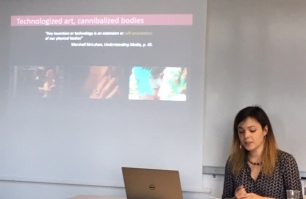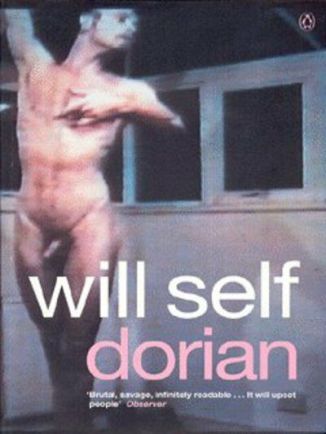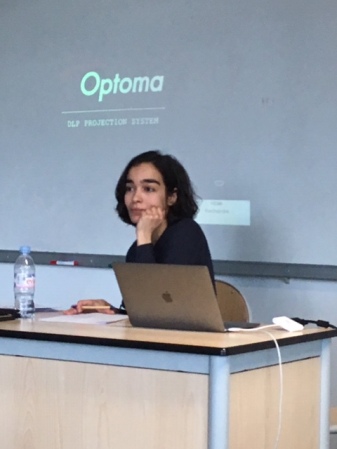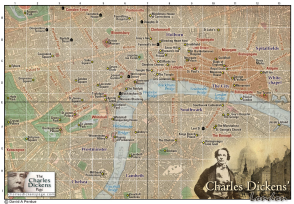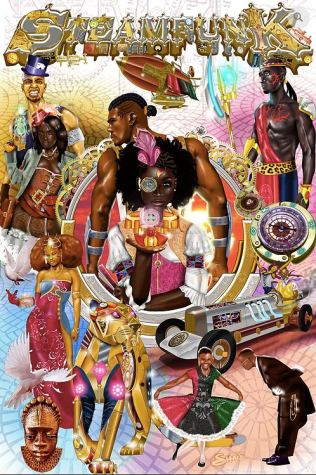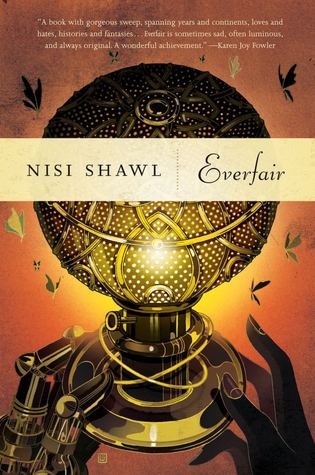Programme 2019-2020 :
- 16 October 2019, 17h30: Dr. Sean Witters (University of Vermont), “The Murderous Mark of the Fiend’s Grasp”: Rebecca Massey, History, and the Iatrogenic Addiction Narrative”
- 6 November 2019, 17h: JDr. esse Oak Taylor (University of Washington), “Unquiet Earth: Emily Brontë and the Intimacy of the Anthropocene”
- 13 November 2019 17:15: Dr. Carmel Christy (Université de Delhi), ESS SESSION
- 11 December 2019, 17h30: Dr. Céline Prest, “Charles Dickens’s The Pickwick Papers.” Respondent: Pr. Sara Thornton (University of Paris)
- 5 February 2020, 17h30: Robert Ivermee (SOAS, University of London): “’A Most Capricious Waterway’: The Hooghly River and the limits of colonial power in British India”
- April 2020: Dr. Julia Kuehn (Associate Professor at the University of Hong Kong), “Travel writing and the novel form”
2018-2019
Session 59: “Dutiful daughter to “difficult” woman: gender and home life in the case of Florence Nightingale”
Session 58 of our seminar took place on Wednesday 12th June 2019, 17h30-19h30, at the Université Paris Diderot (bâtiment Olympe de Gouge, salle 347).
Dr. Richard Bates (University of Nottingham) gave a paper entitled ‘Dutiful daughter to “difficult” woman: gender and home life in the case of Florence Nightingale’.

William White, Florence Nightingale; Frances Parthenope, Lady Verney, watercolour, c. 1836, 462 x 358 mm, National Portrait Gallery, London.
His respondent was Marie Ruiz (Université de Picardie Jules Verne).
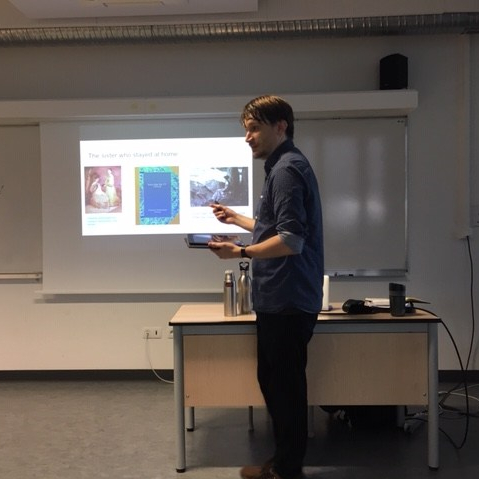
Abstract: Leaving Home
This chapter will be part of a a forthcoming book on Nightingale and the home. It covers Nightingale’s battle to leave the domestic environment and strike out as an independent and ambitious woman at a time when most upper-class nineteenth century women married and moved to homes similar to their childhoods. Finding her early efforts frustrated, Nightingale wrote an impassioned text, ‘Cassandra’, denouncing home life as it had been constructed for women like her. This text, unpublished until 1928, will be set in the context of other proto-feminist writing of the period. The chapter investigates how Nightingale’s forging of a career outside of the home compares with that of her sister Parthenope, a more typical representative of women of her time and class.
Nightingale’s relationship with her family and home was riddled with paradox and ambivalence. Home and family constrained her, in all of the ways that she laid bare in ‘Cassandra’, but they also enabled her, providing her with the financial and educational means to conceive of a different existence. Nightingale felt that her home was a prison; yet it was a prison providing her with the means and tools of escape. Nightingale loved her close family members, and enjoyed the houses that they lived in. What she was ‘leaving’ was not places or people so much as a way of life and a state of mind: one in which women could not study seriously or engage in intellectually-challenging work, but must always be prioritising appearances, social etiquette, status and reputation. Yet even there, her possession of social graces learnt at home enabled her to charm and thereby work with men with power, beginning but not ending with Lord Palmerston and Sidney Herbert. Nightingale had to leave home in order to work, yet ‘home’ sustained that work, through the financial, administrative, and emotional support that she received. ‘Home’ provided a set of values and practices from which a public life could be constructed and legitimized.
‘Home’, in this chapter’s sense of a place in which upper-class young women’s freedom of action was severely constrained by social convention, was represented by Nightingale as an unhealthy place. It was unhealthy not in the sense of being dirty or unsanitary, but rather in the sense of being harmful to psychological wellbeing, destructive of intellectual independence and conducive to depression, hysteria and lassitude. The nervous breakdown of her sister Parthenope, who was guilty of no more than trying to uphold and succeed within conventional boundaries, epitomised this. Nightingale’s thinking shows her already moving towards a holistic conception of health that stressed psychological and ‘moral’ components – ‘moral’ here defined to encompass ‘morale’ as well as ‘morality’ – as well as physiological and sanitary elements.
Session 58: “Reproducing Dorian Gray: Technology and media in contemporary rewritings of The Picture of Dorian Gray”
Session 58 of our seminar took place on Wednesday 15th May 2019, 17h30-19h30, at the Université Paris Diderot (bâtiment Olympe de Gouge, salle 347).

John Logan, Penny Dreadful, season 1, episode 2, “Séance” (00:19:20, Sky/Showtime, 12 May 2014)
Camille Martin-Payre (Université Paris Diderot) gave a paper entitled “Reproducing Dorian Gray: Technology and media in contemporary rewritings of The Picture of Dorian Gray.”
Xavier Giudicelli (Université de Reims Champagne-Ardenne) was her respondent.

Session 57: “Counter-Mapping in Dickens’ and Rushdie’s Urban Narratives.”
Session 57 of our seminar took place on Wednesday the 3rd of April 2019, 17h30-19h30, at the Université Paris Diderot (bâtiment Olympe de Gouge, salle 347).
Ludmilla Toualbia (Université Paris Diderot) gave a paper entitled “Counter-Mapping in Dickens’ and Rushdie’s Urban Narratives.”
Dr. Pushpa Arabindoo responded to her paper. Pushpa Arabindoo is Associate Professor in Geography & Urban Design Department of Geography University College London, research fellow at L’Institut d’Études Avancées de Paris, co-director of the UCL Urban Laboratory and editor of the CITY Journal.
Session 56: “Ecrire une histoire vidéoludique de la Caraïbe. Aux sources d’Assassin’s Creed: Black Flag.”

Julien Bazile (Université de Lorraine et Université de Sherbrooke) gave a talk entitled “Ecrire une histoire vidéoludique de la Caraïbe. Aux sources d’Assassin’s Creed : Black Flag.” His respondent will be Marie-Jeanne Rossignol (Université Paris Diderot)
This was a joint session with the research group ‘Fictions historiques’ (whose parent project is Ecrire l’histoire depuis les marges).
Session 55: ‘Postcolonial steampunk’
Session 55 of our seminar took place on Wednesday the 20th of February 2019, 17h30-19h30, at the Université Paris Diderot (bâtiment Olympe de Gouge, salle 347).
Caroline Duvezin-Caubet (Université de Poitiers) gave a paper entitled ‘Postcolonial Steampunk.’
Her respondent was Sandeep Bakshi (Université Paris Diderot).
Session 54: ‘Originals, Reproductions, and Artistic Copyright in Victorian Britain’
Session 54 of our seminar took place on Wednesday the 7th of November 2018, 17h30-19h30, at the Université Paris Diderot (bâtiment Olympe de Gouge, salle 347).
Will Slauter (Université Paris Diderot) gave a paper entitled ‘Originals, Reproductions, and Artistic Copyright in Victorian Britain.’
His respondent was Pr. François Brunet (Université Paris Diderot).

Will Slauter talking about stereoscopic photography and copyright

Pr. François Brunet responding to Will’s paper and seminar participants peering through a stereoscope
We worked with the following text:
Ronan Deazley, ‘Photography, copyright, and the South Kensington experiment’, Intellectual Property Quarterly (3), 2010, pp. 293-311.
Session 53: “Making Oscar Wilde.”

Session 53 of our seminar took place on October 19th at the Université Paris Diderot.
Michèle Mendelssohn (University of Oxford) gave a paper entitled “Making Oscar Wilde” to present her new book, Michèle Mendelssohn, Making Oscar Wilde, Oxford: Oxford University Press, 2018.
Her respondents were Camille Martin-Payre (Université Paris Diderot) and Pr. Sara Thornton (Université Paris Diderot).
The session was a jointly-organized collaboration between the Victorian Persistence and A19 seminars as part of the LARCA research centre (UMR 8225 du CNRS).
Programme 2016-2017
– 7 March 2018: Guillaume Didier (Université Paris-Sorbonne) gave a paper entitled “Mythe et récit d’exploration en Angleterre, 1860-1872. À la recherche des sources du Nil et des Montagnes de la Lune.”
– 23 November 2016: Pr. Julian Wolfreys (University of Portsmouth) gave a paper entitled “Victorian Hauntings: reflections on forms of persistence.”
– Wednesday 11 January 2017: Charlotte Wadoux (Université Sorbonne Nouvelle – Paris 3) gave a paper entitled “The Staplehurst Railway Accident as a Gothic Motif in Dan Simmons’s Drood.” Respondent: Pr. Catherine Lanone (Université Sorbonne Nouvelle – Paris 3)
– 21 February 2017: Dr. Melissa Dickson (University of Oxford) gave a paper entitled “Medical Technologies and Listening to the Body.” Respondent: Dr. Sophie Vasset (Université Paris Diderot-Paris 7)
– 7 June 2017: Mathilde Vialard (Université Paris Diderot-Paris 7): “The Nineteenth-Century Idée Fixe: The Concept of Monomania and its Influence on Literature.” Respondent: Pr. Christine Berthin-Murphy (Université Paris Ouest Nanterre La Défense)
Programme 2015-2016
– 22 June 2016: Thomas Constantinesco, Michel Imbert, Cécile Roudeau (Université Paris 7) “The persistence of the word Victorian in America”
– 19 May 2016: Aina Marti (King’s College London): “Inhabiting Victorian Sexual Ideology in Eyes Wide Shut and Antichrist“. Respondent: Clémence Folléa (Université Paris Diderot-Paris 7)
– 10 January 2016:Páraic Finnerty (University of Portsmouth): “Women’s Transatlantic Poetic Network.” Respondent: Adeline Chevrier-Bosseau(Université Paris-Est Créteil).
– 4 November 2015: Leslie De Bont (Université de Nantes): “She hovers on the periphery of our vision, insubstantial, puzzling, spectral”: Persisting intertextuality and May Sinclair’s place (or lack of it) in literary history.” Respondent: Dr Leigh Wilson (University of Westminster)
– 7 October 2015: Sarah Barnden (King’s College London) “From Life: Julia Margaret Cameron, sympathetic Shakespeare and photographic afterlives.” Respondent: Pr. Ladan Niayesh (Université Paris Diderot).
– 23 September 2015: Andria Pancrazi (Université Paris Diderot): “Cold Feet, Ruined Gold : Decomposing bodies in A.C. Swinburne’s poetry” Respondent: Sébastien Scarpa (Université Stendhal-Grenoble 3).
Programme 2014-2015:
– 23 October 2014: Tomek Mossakowski (King’s College London): “Imaginary terrors, unpleasant consequences: scurvy and same-sex affairs during polar exploration.” Respondent: Pr. Frédéric Regard (Université Paris-Sorbonne).
– 26 November 2014: Hubert Malfray (Université Paris-Sorbonne): “The persistence of the criminal theme: the Newgate Novel and the popularity of literary transgression.” Respondent: Pr. Nathalie Vanfasse (Université d’Aix-Marseille).
– 10 December 2014: Verity Burke (University of Reading): “Outside the Laboratory Door: Narrative Medicine in Wilkie Collins’s Heart and Science.” Respondent: Dr. Andrew Manghan (University of Reading).
– 29 January 2015: Katherine Osborne (King’s College London): “Scratches in the Window: Education and Discipline in Wuthering Heights.” Respondent: Professor Catherine Bernard (Université Paris Diderot – Paris 7).
– 4 February 2015: Pr. Roger Chazal (Emeritus Professor, Paris 8 University): “Persistance et systémique : romantique et victorien, et cetera.” Respondent: Pr. Jean-Marie Fournier (Université Paris Diderot)
– 25 March 2015: Dr. Michael Talbot (Université Paris 1): “Exploring persistence in humour: Cartoons and comic dialogues in the late Ottoman Empire.” Respondent: Sam Dolbee (New York University)
– 15 April 2015: Róisín Quinn-Lautrefin (Université Paris Diderot): “’As I cannot write’: stitching self and soul in Elizabeth Parker’s sampler.” Respondent: Ariane Fennetaux (Université Paris Diderot).
– 20 May 2015: Nicola Kirkby (King’s College London):“Railways and Narrative Lines in Elizabeth’s Gaskell’s North and South.” Respondent: Pr. Sara Thornton (Université Paris Diderot-Paris 7).
– 10 June 2015: Una Brogan (Université Paris Diderot): “Humour in British and French bicycling literature and culture, 1880-1914.” Respondent Will Noonan (Université de Bourgogne).
Programme 2013-2014:
– 9th October 2013: Owen Holland (University of Cambridge). “William Morris’s News from Nowhere and the Politics of Mundane Intervention.” Respondent: Pr. Isabelle Gadoin (Université de Poitiers).
– 21st November 2013: Nolwenn Corriou (Université Sorbonne Nouvelle). “‘A rare and beautiful hand’: collecting the colonial body.” Respondent: Dr. Stefano Evangelista (Lecturer and Tutorial Fellow at Trinity College, Oxford).
– 4th December 2013: Claire Deligny (Université Paris Diderot). “‘The asylum and the community’: the lunatic asylums at Lancaster, Prestwich and Rainhill (Lancashire) and the local press, 1845-1914.” Respondent : Catherine Cox (University College, Dublin).
– 9th January 2014: Pr. Antoine Cazé (Université Paris Diderot) and Pr. Cristanne Miller (University at Buffalo, titulaire de la Chaire Tocqueville Fulbright, Janvier 2014): “Visual Persistence: The Appearance(s) of Emily Dickinson’s Poetry.”
– 5th February 2014: Clare Walker-Gore (University of Cambridge), “At the Margins of Mystery: Sensational Difference in the Novels of Wilkie Collins.” Respondent: Kathryn Maude (King’s College London).
– 18th February 2014: Pr. David Peters Corbett (Professor of Art History and American Studies, University of East Anglia): “Landscape, Development and Mid-Nineteenth-Century America.” Respondent: Pr. François Brunet (Professor of Art and American Literature, Université Paris Diderot).
– 19th March 2014: Fariha Shaikh (King’s College London), “Mobility, Space and Place: Settler Emigration and the Nineteenth-Century Novel.” Respondent: Pr. Elleke Boehmer (University of Oxford).
– 8th April 2014: “Chartism in Poetry.” Mike Sanders (University of Manchester): “L’aube des prolétaires? Reading Chartist Poetry after Rancière.” Fabienne Moine (Université Paris Ouest Nanterre la Défense): “A Sense of Belonging/s: Eliza Cook’s Contribution to Chartist Poetry.” Respondent: Pr. Fabrice Bensimon (Université Paris-Sorbonne).
– 21st May 2014: Edmund Birch (University of Cambridge): “Fictions of the Press: Gissing’s Lost Illusions.” Respondent: Pr Nicholas White (University of Cambridge).
– 11th June 2014: Diane Leblond (Université Paris Diderot), “Ghosts from Wonderland: Jeanette Winterson’s Gut Symmetries and the Visual Pragmatics of Intertextuality.” Respondent: Pr. Jean-Jacques Lecercle (Université Paris X – Nanterre).
Programme 2012-2013:
– 10th October 2012: Sonia Ouaras (Université Sorbonne Nouvelle), ‘The Mind in Distress: Investigation into the Uncanny in Victorian Fiction’. Respondent: François Vergne (Maître de conférences, Université Sorbonne Nouvelle).
– 14th November 2012: Céline Prest (Université Sorbonne Nouvelle), ‘Circulation, Saturation and Implosion: the Dynamics of Paper in Dickens’s Novels’. Respondent: Pr. André Topia (Professor Emeritus of English Literature at the Université Sorbonne-Nouvelle).
– 5th December 2012: Sarah Gould (Université Paris Diderot), ‘

